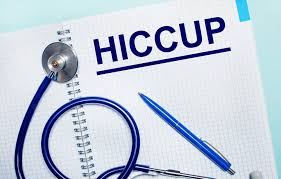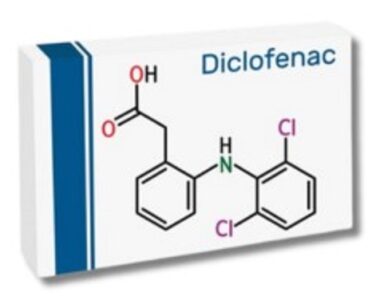No products in the cart.

A look at what causes hiccups and how to treat them?
what causes hiccups
INTRODUCTION:
In general, nearly everyone experiences hiccups at some point in their lives. Hiccough and “singultus” are other hiccup terms, Latin for “gasp.”
In this section, we’ll cover the causes of hiccups, as well as the diagnosis and treatment options.
PIDEMOLGY
For the most part, the frequency and prevalence of long-term hiccups in the general population remain unknown, but they are prevalent. However, a comprehensive analysis indicated that between 1 and 9 percent of individuals with advanced cancer experienced recurrent or intractable hiccups.
According to research, hiccups are more common among men and those who are taller. In one research, men were shown to have a higher prevalence of hiccups (odds ratio [OR] 2.42, 95 percent confidence interval [CI] 1.40-4.17) in patients without a central nervous system cause (OR 11.72, 95 percent CI 3.16-43.50). Among 220 patients with persistent hiccups, 80 percent were elderly males, according to the results of a small study. The incidence of hiccups has not been associated with any of these factors.
PATHOPHYSIOLOGY
The diaphragm and intercostal muscles contract intermittently and spasmodically to cause the hiccup. When inspiration strikes suddenly, the glottis closes abruptly, resulting in the “hic” sound. The left hemidiaphragm is implicated in around 80% of instances. An individual may have 4 to 60 hiccups in an hour, although this frequency tends to remain consistent.
The hiccups: some quick facts
- Hiccups are related to a wide range of diseases, including stroke and digestive issues, but the specific etiology of hiccups remains a mystery.
- Most occurrences of hiccups resolve on their own, but if they persist, they might lead to more serious side effects, such as melancholy and sleeplessness.
- For more than 48 hours, the person should seek medical attention and be given muscle relaxants.
- It’s possible to lessen the likelihood of getting hiccups by avoiding alcohol and eating slowly.
Causes
Chronic or persistent hiccups can be caused by a wide variety of underlying disorders.
It’s still unclear exactly how or why people get the hiccups, although some things have been linked to an increased probability of getting them. In the next sections, we’ll further examine some of these characteristics.
Factors affecting a person’s lifestyle
Hiccups can be brought on by the following:
- It is possible to experience diaphragmatic pain when you consume foods that stimulate the phrenic nerve near the esophagus,
- have stomach gas push against the diaphragm,
- eat too much,
- drink alcoholic beverages that include carbon dioxide (particularly if they are carbonated), or are stressed.
Some drugs, such as opiates, benzodiazepines, anesthetics, corticosteroids, barbiturates, and methyldopa, can also produce hiccups, which can be a side effect.
Conditions of health
Unknown to the patient or the doctor, hiccups can develop at any time and have no known cause.
Several medical disorders have been related to chronic hiccups, though. Among them are:
- A small bowel blockage or gastroesophageal reflux disease (GERD) are examples of gastrointestinal diseases (GERD)
- Diaphragmatic pleurisy, pneumonia, or asthma are all examples of respiratory diseases.
- Alcoholism is both extreme and regular.
- disorders of the central nervous system, such as a stroke or an ischemic stroke, a brain tumor, or an encephalitis
- Meningitis, pharyngitis, and goiter are among disorders that can irritate the vagus nerve.
- Grief, enthusiasm, worry, stress, and shock are all examples of psychological responses.
- Hyperglycemia and hypoglycemia, as well as diabetes, are all metabolic disorders.
- renal and liver disease
- As a result of the disease itself or as a reaction to chemotherapy, cancer might develop.
autonomic nervous system problems, which also impact respiration, sweating, and the pulse as well as coughing and hiccups
Hiccups can also be caused by bladder irritation, cancer of the liver, pancreatitis, pregnancy, and hepatitis, to name just a few. Surgery and lesions may potentially increase the chance of complications in the future.
Infants
Babies are more likely to develop hiccups during or after feeding, as they may swallow food too rapidly or overfeed. It’s also possible that the hiccups indicate overheating in babies. Because of this, pediatricians often advocate feeding infants for brief periods, followed by burping pauses.
In addition, a baby’s breathing and swallowing may be out of rhythm, which can cause hiccups. As a result, a newborn may have a hiccup when forced to take a breath and swallow.
What causes hiccups?
Hiccups can develop from a variety of causes. Detailed descriptions of these issues are provided in the following paragraphs.
After a meal or a cup of coffee
Overeating or drinking too soon can cause hiccups most commonly.
When this happens, the diaphragm is pushed up on the stomach, causing it to bulge outward. Inhaling causes the diaphragm to contract, which in turn irritates the diaphragm.
In addition to food-related activities, hiccups can be caused by:
- sugary drinks in one mouthful
- acid reflux or heartburn.
- having a drink or two
- a lot of smoking
- included during hyperventilation, swallowing air
- eating hot then cold food, or the other way round
Triggers of the emotions
It’s possible that hiccups can be caused by a problem with brain-to-ribs nerve connections.
- Short-term hiccups may occur following:
- shock or stress on the emotional system
- excitement
- a sudden drop in temperature, as with a cold shower
Reasons for this
A person may also have hiccups if they experience any of the following conditions:
- overstretches their neck, when shaving
- medications Usage
- Requires anesthetics medication during surgery
Medications that might cause hiccups to include:
- Certain chemotherapeutic agents
- Opioids for pain relief
- benzodiazepines for anxiety
Uncontrollable hiccups
Hiccups that last more than 48 hours are referred to as “persistent.”
Hiccups might linger for more than two months in some people. Occasionally. Most Doctors call them “intractable hiccups”,
You may have an issue with:
- blood composition, such as elevated calcium levels
- the stomach, if it pulls on the diaphragm or chest wall
- the brain or spinal cord
Why do we get hiccups when we eat chili peppers?
It is a chemical component called capsaicin, which is part of a group of compounds that give chilies their distinct flavor and heat profile. Neurons in the diaphragm are activated by capsaicin, which causes the diaphragm to constrict.
Additionally, capsaicin might irritate. Capsaicin is supposed to be a defensive mechanism used by chili plants to keep animals away from the plant. However, it’s a unique trait shared by just a few species.
Hiccups can cause a variety of health issues.
Chronic hiccups can cause a variety of issues, including:
- Weight loss and dehydration: eating and drinking might be difficult if the hiccups are frequent and short-lived.
- Long-term hiccups can cause insomnia, which makes it difficult to get to sleep and remain asleep.
- Insomnia and fatigue are common side effects of having frequent or long-lasting hiccups.
- Communication difficulties: If the person has hiccups, it might be difficult for them to talk.
- Hiccups might raise your chances of getting clinical depression if you have them for a long period of time.
- Post-surgical wounds may take longer to heal if there are persistent hiccups, increasing the risk of infection or bleeding.
An irregular heartbeat and gastroesophageal reflux disease (GERD) are other possible problems.
It’s the finest technique to get rid of the hiccups:
Hiccups usually go away on their own within a few minutes or hours, so there is no need to seek medical attention if you have them. However, if they continue, you should see a doctor. But their efficacy is still unproven.
How to stop having hiccups?
In order to get rid of the hiccups, try these suggestions:
- Take a slow sip of ice-cold water or gargle with ice-cold water to relieve the symptoms.
- Breathe in for a few seconds, then exhale. Aim for three or four times a day.
- Put a little pressure on your nose while you’re swallowing.
- Diaphragmatic pressure should be applied gently at this point in time.
- Take a swab of lemon and chew on it.
- Chew on some sugar granules.
- Use only a small quantity of vinegar, according to taste.
- Use a paper bag to help you breathe. Never put your head in a plastic bag, and never use a bag to cover your head.
- For a brief period of time, sit with your knees hugged as close to your chest as possible.
- Gently squeeze the chest by leaning forward.
- Acupuncture or hypnosis are two examples of alternative treatments.
- Gently tug on the tongue using your fingers
- Rub the eyes.
- Place one finger gently on the back of the throat in an attempt to elicit a gag response.
Many of these tidbits have likely been handed down orally from generation to generation. Some people may benefit from them, but there isn’t much evidence to back up their usage.
Medical Treatments:
The hiccups are likely to go away if the underlying issue is addressed.
A doctor may recommend medicine if a patient’s quality of life is being negatively impacted by frequent and/or protracted hiccups.
For hiccups, chlorpromazine is the only medicine approved by the Food and Drug Administration (FDA).
The following drugs may be prescribed by a doctor for hiccups if there is no underlying medical condition:
- some patients with hiccups may benefit from using metoclopramide (Metomide), an antinausea medicine
- The muscle relaxant baclofen (Lioresal) (off-label use)
- Gabapentin, an antiseizure drug often prescribed for neuropathic pain and capable of reducing hiccups symptoms (off-label use)
We can use these medications to alleviate hiccups that occur during anesthesia or surgical procedures.
Doctors often prescribe a low-dose medicine for two weeks to treat hiccups. Gradually increase them until the hiccups stops. If the hiccups are severe, you may need a longer term of treatment or a lower dose of medication.
Surgery
A surgeon can temporarily block or sever the phrenic nerve when previous therapies fail to work.






8 Comments